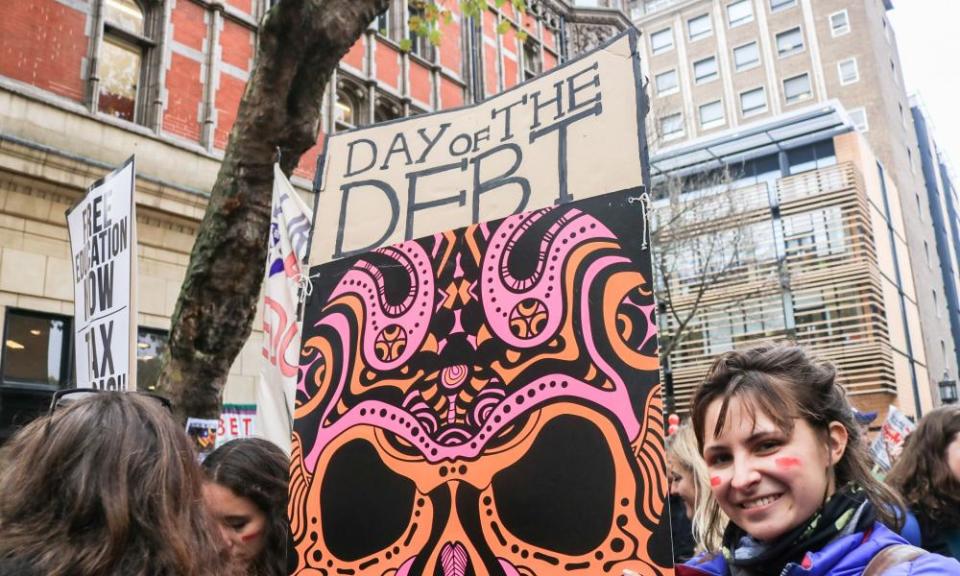The only honest thing to do with student debt? Write it off

A mental health crisis continues to explode on university campuses. Food banks are opened for students who cannot afford to eat. The poorest students find themselves leaving university with nearly £60,000-worth of debt. Despite such a gloomy backdrop, the Tories continue to paint students as privileged investors, taking on debt so as to enrich themselves later in life. For years they have sown the lie that the pursuit of higher education only benefits the individual, and it must therefore fall on students to fund their own futures. But this is a lie that is slowly starting to unravel.
The announcement by the Office for National Statistics that it will no longer count all student loans as financial assets, and that instead a proportion will be counted as government expenditure, ruins the government’s position. The current debt – in excess of £100bn – is supported by the government based on the premise that it will be paid off. But it never will be. The Office for Budget Responsibility believes that only 38% of the money and interest will ever be repaid. With predictions that the unpaid debt will rise to £1tn by the 2040s, it is clear that something radical must be done.
It is a failure that the prime minister owned up to at the beginning of the year, admitting that England has “one of the most expensive systems of university tuition in the world” before offering pathetic soundbites alongside zero solutions. Instead, the government has pushed ahead with the status quo: doubling down on the market-obsessed ideology within the higher education system, leaving students saddled with insurmountable debt.
Rather than seeing education as a social good, the Tories sell it as if it is an investment opportunity. But what world are they living in if they believe students will buy this? Graduates now enter a world of work where wages are worth a third less than they were in 2008, where job opportunities are diminishing and where their workplace rights are under sustained attack.
Far from enriching themselves with an undergraduate degree, young people are forced to burden themselves with debt before being thrown into repayments that come with an extortionate interest rate. There is no defence for charging graduates above-inflation interest to fund their education – other than it being an admission that the system is wholly broken.
Labour’s commitment to scrap tuition fees in its 2017 manifesto was not a handout to students, but a welcome admission that something had to be done about the gross unfairness embedded within the current system. It was also a refreshing reassessment of education as a social good and a recognition of the fact that a university education can offer a huge social and economic advantage not just to an individual student, but to wider society.
But Labour’s pledge must go further. If it is to properly address that unfairness it must also rescue thousands of students trapped in a cycle of never-ending debt by the policies of this Tory government. When Jeremy Corbyn was wrongly charged with betraying students after the last general election over his call to “deal with” the debt burden of with “the historical misfortune to be at university during the £9,000 period”, he should have doubled down and admitted that more must be done.
Corbyn should revisit his call to “deal with” this debt burden by promising to wipe all historic student debt. He will, of course, be met with the usual calls of “how will you pay for it?”, but this should not put him off. The Institute for Fiscal Studies estimates that the true cost of such a move would have almost no effect on government debt in the short run, but would increase debt “by around £20bn by 2050”.
Labour would have to be honest about how they would pay for free university tuition and the scrapping of this insurmountable debt: by raising taxes on wealth, corporations and those who receive the highest incomes. This should not be seen as a sweetener for students, instead it should be seen as a move to rectify the historic mistake of the marketisation of higher education. Doing so would not just answer the financial question, but the social one too. It would finally bury the argument that it is the individual student who benefits most from a university education, but rather that such an education benefits the whole of society.
• Liam Young is a writer and the author of RISE

 Yahoo News
Yahoo News 